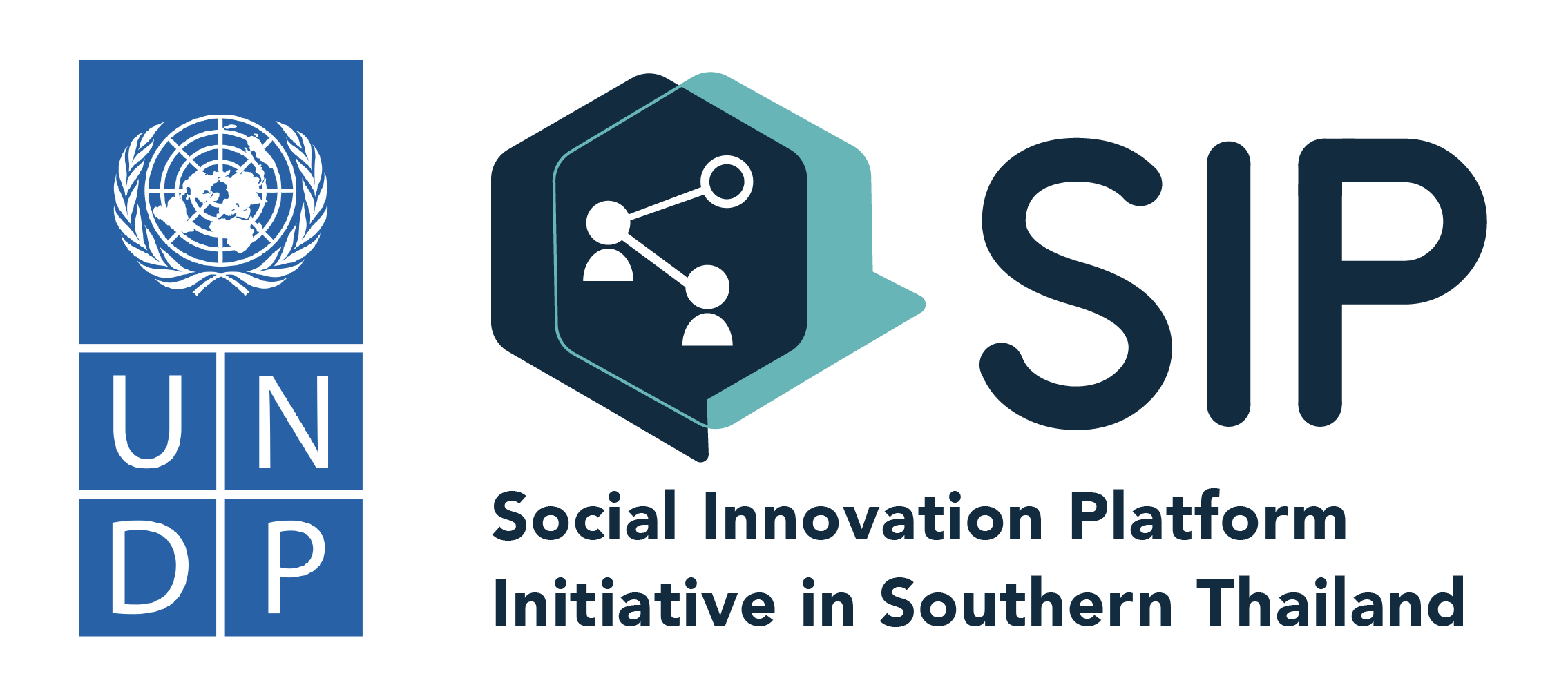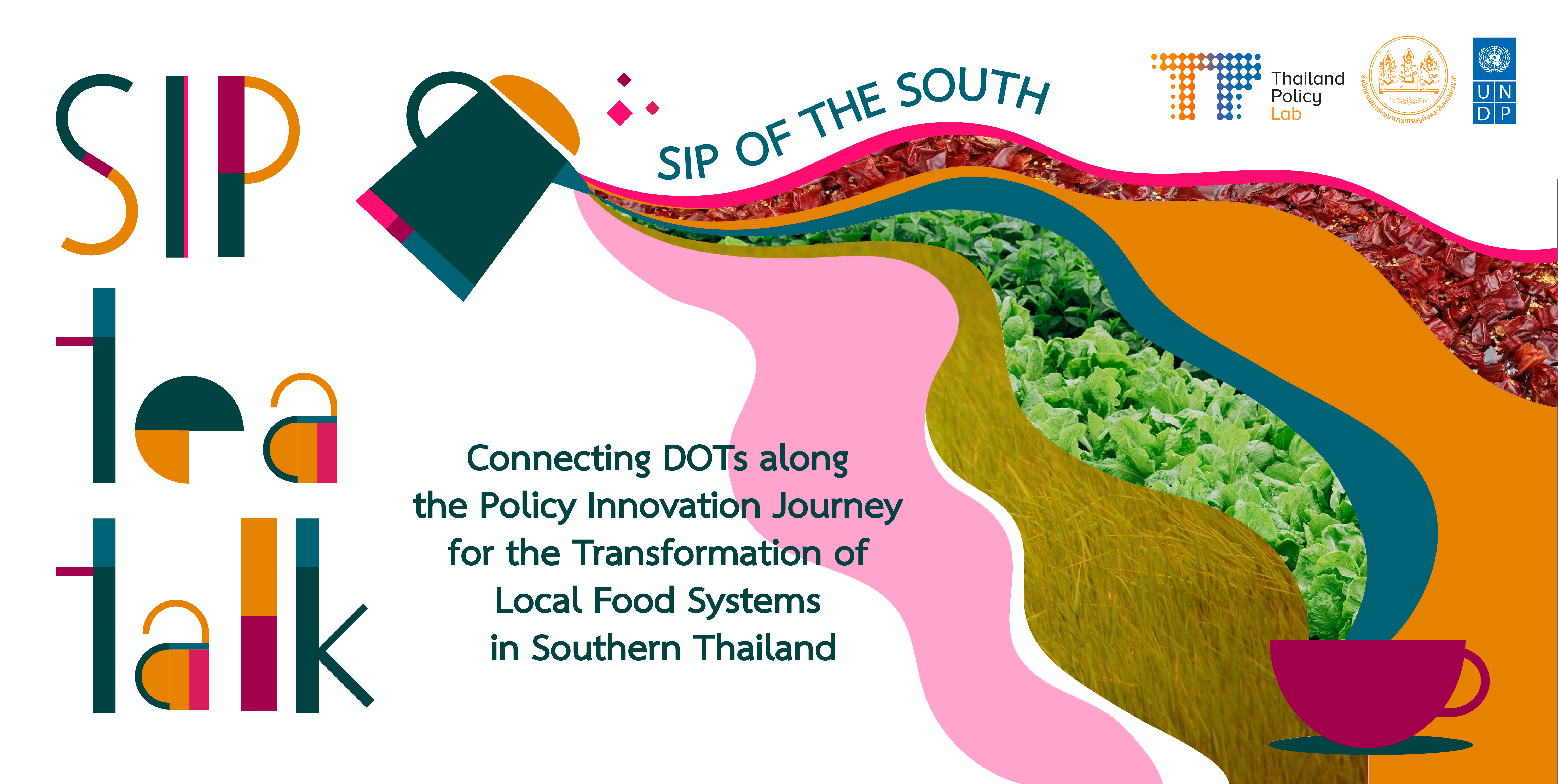Product Description
Key Summary SIP Tea Talk 3 – Local Heroes Series: Youth today and their superpower for changes
Youth Change Agents: Experience from the Local Heroes Series for local development
Ms. Nitchakan Damaratat (Cadet), social innovation and youth development officer, UNDP
She has worked with UNDP for 5 years. Initially, she focuses on empowering youth that they are needed and have capability. Then, she focuses on enhancing skills to recognize issues, have directions for the development and crystallize interesting issues. After that, she builds connection with local people, talks to related persons, constructs interaction with stakeholders such as issues of food system during COVID-19 that the team observes a market and discusses about it to create innovation based on local materials to make them feel proud of local wisdom. The team also enhances the community’s learning skill, thanks to the municipal office’s support. Youth and adults are encouraged to share their opinions to instill cooperation mindset into them.
Local Heroes Series: Youth today and their superpower for changes
Mr. Pongpanott Deekong, assistant of policy and social innovation, Thailand Policy Lab. Challenge of attracting youth to create changes is policy implementation.
The authorities must be aware of youth’s voice to acknowledge their true needs. Their voice must not be taken for granted. Youth has to listen to adults, and vice versa. In the past 2 years of online classes, children’s stress has significantly increased. According to data, we find 3 main issues, i.e., 1) education issue, 2) youth mental health issue, 3) gender diversity, which policies must be formulated to solve the issues. Clear policies are from social listening by analyzing top keywords. Then, policy hackathon must be performed to explore preventive measures and support for empathy. Lastly, the future learning will enable us to use tools to design solutions based on the youth’s creativity.
Youth UX: co-creation network for youth development
Roger Warnock, Youth UX, Zano Collective Founder
Youth UX platform was developed by the new generation for the new generation with aim to allow the youth to share their voices to policy related stakeholders. For example, in Uganda, there is a dashboard presenting issues, cause of stress and concern over future, lack of opportunity, employment, suicide wish, etc. Users can post both positive and negative responses. Globally, 79% of the youth is concerned over future, 72% of the youth is concerned over mental health, while 74% of the youth is concerned over social innovator and 66% of the youth is concerned over political issue. The platform shows interest and voices of the youth regarding different aspects in form of policies.
The new generation works as a team to develop content, present ideas and brainstorm. This platform is a place for the youth who wishes to be innovators, and it has subgroups for those who are interested in society and environment. The youth all over the world can be connected through this tool. It also has a feature that shows nearby users for them to interact and use the tool to raise their voices leading to transformation.
Youth’s movement starts from tiny groups gathering together by sharing big data. The current system encourages changes and better reaches policy makers. To achieve that, an intermediary is needed to assist local youth to perform SDGs and jointly formulate local projects as to bring up the youth’s voice. Sandbox and accelerator are also executed. Innovations will receive small funds from the local government and the youth will be introduced to sustainable development agencies. Moreover, rewards will be granted to idea makers.
Co-production process is to raise ideas to the government for implementation. This reflects projects to be align with the government. For example, mental health issue due to online classes that is analyzed by the social listening tool presents that the issue is real and reliable. An intermediary is very significant to make safe zone for both parties to have reasonable discussion. Different from social innovation, policy innovation cannot be experimented right away because related ministries have to be involved. If the innovation is feasible, the ministries will be in charge of policy formulation. This process is deemed as listening culture without judging the youth and uplifts the systematic thinking process for future stakeholders.
This platform links local operations with global operations and is involved in the movement in short period. For local movement, safe zone has to be constructed first, similar to UNDP’s operations. The team tries to build local node for the municipal office to work with the youth; for example, TK Park which is learning space for the public. Incubation space has been developed with the youth as well.
Stress from online classes is not due to watching screen, but because of same courses, same class duration, same teaching techniques. The courses should be competency-based courses for practical use. Students do not have to study as hard as before, but they can adapt knowledge to daily lives. Moreover, teachers should change their teaching techniques and families need to understand children’s situation. Moreover, a supporting team has to be able to provide mental support. This is the beginning point to solve the issues and create safe zone for having teachers who share knowledge and assist students, and parents who understand their children.
For safe zone in Thailand, YouthUX recommends making anonymous survey that data must be kept confidential. Listening process must focus on uncomfortable issues and brainwashed issues. Co-creation is a good tool, and the new generation adapts easily. Anonymous survey is a good tool to share good ideas that reflect problems and facilitate learning process because everybody takes part in sharing knowledge and executing respectfully.



